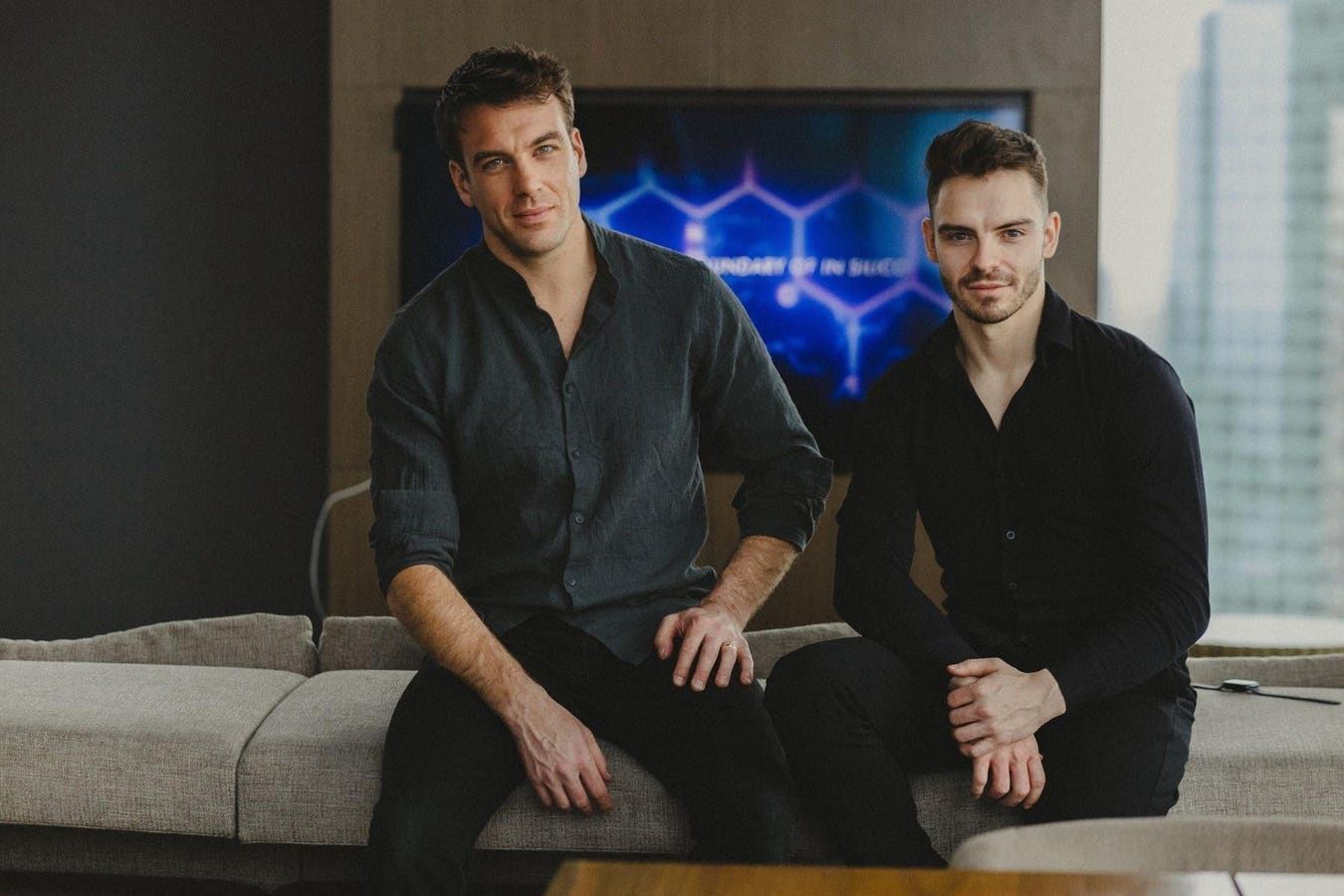The cellular processes that keep us alive produce a lot of waste. Which is why our cells have evolved a natural garbage disposal system, a group of special chemicals called “protein degraders” that break down unneeded junk in your body. They’ve recently emerged as a key area of interest for pharmaceutical companies, whose scientists are looking for ways to hijack this waste management system, Jersey mob style, and turn it against a variety of diseases.
One way to do that: “molecular glues.” These chemicals bind to the surface of a disease-causing agent in a way that activates those protein degraders, tricking the body into thinking the agent is another bit of trash to be eliminated. It’s elegant in concept but hard to pull off in real life, in part because these glues don’t naturally emerge to bind themselves to pathogens. Which means that as As Zachary Carpenter, cofounder and CEO of VantAI told Forbes, “You can’t just discover glues through trial and error.” Carpenter’s company is trying to expedite the discovery process using generative AI to actually design glues that can be manufactured and delivered like drugs. “You really need a big breakthrough in an AI approach, treating them like a geometric puzzle,” he said.
On Tuesday, VantAI announced a partnership with pharmaceutical giant Bristol Myers Squibb to use that generative AI platform to develop new molecular glues as potential drugs. Under the terms of the agreement, VantAI will receive an undisclosed upfront payment and will be eligible for up to $674 million total in research milestone payments. VantAI will also be eligible to receive royalties for sales of any drug approved as a result of this collaboration.
Robert Plenge, Bristol Myers Squibb’s chief research officer, told Forbes the partnership with VantAI is part of the company’s “heavy emphasis on predictive science and technology. The attraction of using generative AI, he said, is that it “can potentially reduce drug development costs [and] expedite the discovery of new treatments.”
VantAI was founded in 2019 by Carpenter, now 36, and Luca Naef who is now its Chief Technology Officer. The company is part of the Roivant umbrella of pharmaceutical companies established by billionaire Vivek Ramaswamy, who stepped down from his leadership role in early 2023. The pair met when they were working on AI and data analytics problems in drug discovery at McKinsey and decided to bring that expertise to bear on a company of their own.. Creating it as a subsidiary of Roivant rather than a traditional venture-backed company helped them “build credibility” in the field, Naef said. “Roivant was just a very good thought partner.”
When it comes to designing new types of molecular glues and protein degraders, the company’s tech stack is built on generative AI models, said Naef, 29. The key, he said, is using the same pattern recognition underlying services like ChatpGPT and Midjourney to help develop new molecular glues.
Another piece of their AI puzzle is graph theory – the same kind of math that helps TikTok determine what kind of videos to send you. That’s because in the world of chemistry inside your body, there’s a similar dynamic at play. Different parts of a molecule might be attracted – or repelled by – different parts of another molecule, just like you might be inclined to engage with Taylor Swift content if you’re a fan or swipe it away if you’re not. VantAI’s “chief scientist-in-residence”, Michael Bronstein, is an expert at this type of machine learning, which he’s researched not only in drug discovery but also as the former head of graph learning research at Twitter/X.
Bristol Myers Squibb is the first company to have actually commercialized protein degrader agents and is interested in expanding its lead in their use to attack disease, Plenge said, adding that they fit in with the company’s goals of“ transforming outcomes for patients with blood cancers.”
Bristol Myers Squibb isn’t the only big pharma company working with VantAI. The company also has a multi-year collaboration with Janssen Pharmaceutica NV (a subsidiary of the Jannseen Johnson & Johnson companies), Boehringer Ingelheim, and Blueprint Medicines. Together, these collaborative deals are potentially worth up to $3 billion in research milestone payments (not counting royalties.)
Carpenter told Forbes these partnerships are helping VantAI to “push the margins” of what it can do in the drug discovery space, which is important when you’re endlessly searching for new molecular glues and the like. And while the financial incentives are nice, it’s aligning the innovation with VantAI’s strategy that’s most important. “The task and the objectives have to be complementary to the point where they’re achievable,” he said. “They have to be a good fit for our technology, and there has to be a great learning opportunity for both sides.”
Read the full article here





